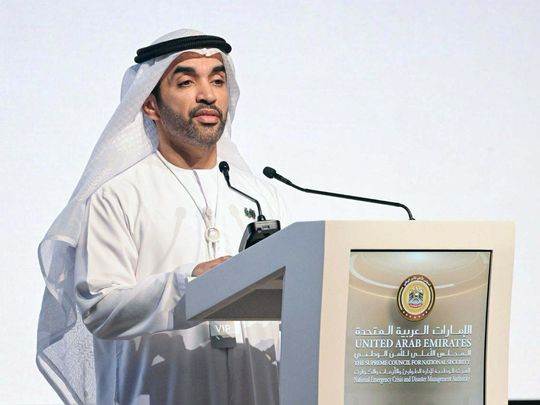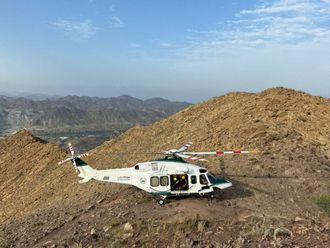
Abu Dhabi: The UAE has launched a new Risk Management Platform (Risks) to help the public and private sector better understand and control risks of various types.
‘Risks’ was unveiled by the National Emergency Crisis and Disasters Management Authority (NCEMA) during the Emergency, Crisis and Disaster Community Forum, which was organised by NCEMA in Abu Dhabi and concluded on February 15.
Risks allows the exchange of information and joint coordination between the NCEMA and external parties. The platform aims to “enrich” scientific and practical knowledge in Arabic content about risk management, and enables stakeholders to participate in its development.
Risks provides specialised services, activities, and programmes in the field of risk management, while also serving as a communication platform for students and professionals interested in this field.

Risk register
It covers, among other topics, the concept of risk management, the need for its existence and its objectives, the stages of risk management, types and classifications of risks, risk governance tools, and the importance of linking them to an organisation’s strategy.
The digital portal also helps to keep track of all identified risks in a register, as well as corresponding risk mitigation measures, such as the controls and barriers deployed. The software also shows the residual risk for each threat after controls or barriers have been applied.
During the Forum, NCEMA also announced the launch of the ‘Tamkeen’ knowledge platform, a digital “meeting point” for the emergency, crisis and disaster management community, where users will be able to exchange experiences and attend training and development programmes provided by the Authority in a renewed and interactive format.
Epidemic preparedness map
Coinciding with Innovation Month (February) in the UAE, the Authority participated in a platform that includes three initiatives, including the Hazardous Materials Emergency and Crisis Metaverse Project to achieve “proactiveness” in the national system, and the NCEMA-HazMatGPT programme to meet the need for safe access to information related to hazardous materials. This is in addition to the geospatial application platform for the epidemic preparedness map, in order to support decision makers.
About the Forum
The Crisis and Emergency Management Community Forum was held under the slogan ‘We are collectively shaping the future of emergency preparedness and response capabilities in the UAE’. During the Forum, the most prominent global trends were discussed to enhance national response and preparedness to risks and develop strategies for managing risks and crises.
NCEMA Chairman Ali Saeed Al Neyadi said: “The Forum is the result of the recommendations of the Emergency and Crisis Management Summit organised in May 2023 under the patronage of His Highness Sheikh Tahnoun bin Zayed Al Nahyan, Deputy Ruler of Abu Dhabi and National Security Advisor. The focus was on the importance of continuous coordination, cooperation and integration between countries and organisations supporting local emergency and crisis institutions, sharing information and experiences, the use of modern technologies and applications of artificial intelligence and big data, and the importance of addressing the new generation of risks posed by economic conditions by relying on studies and research to raise emergency preparedness and readiness.”
In his opening speech at the Forum, Dr Saif Al Dhaheri, director of the National Operations Centre at NCEMA, emphasised the importance of using the latest technologies and keeping pace with rapid technological development to anticipate potential risks and mitigate the impact of crises and disasters. He explained that communication and cooperation between the various stakeholders are among the most critical factors in achieving the best solutions.








